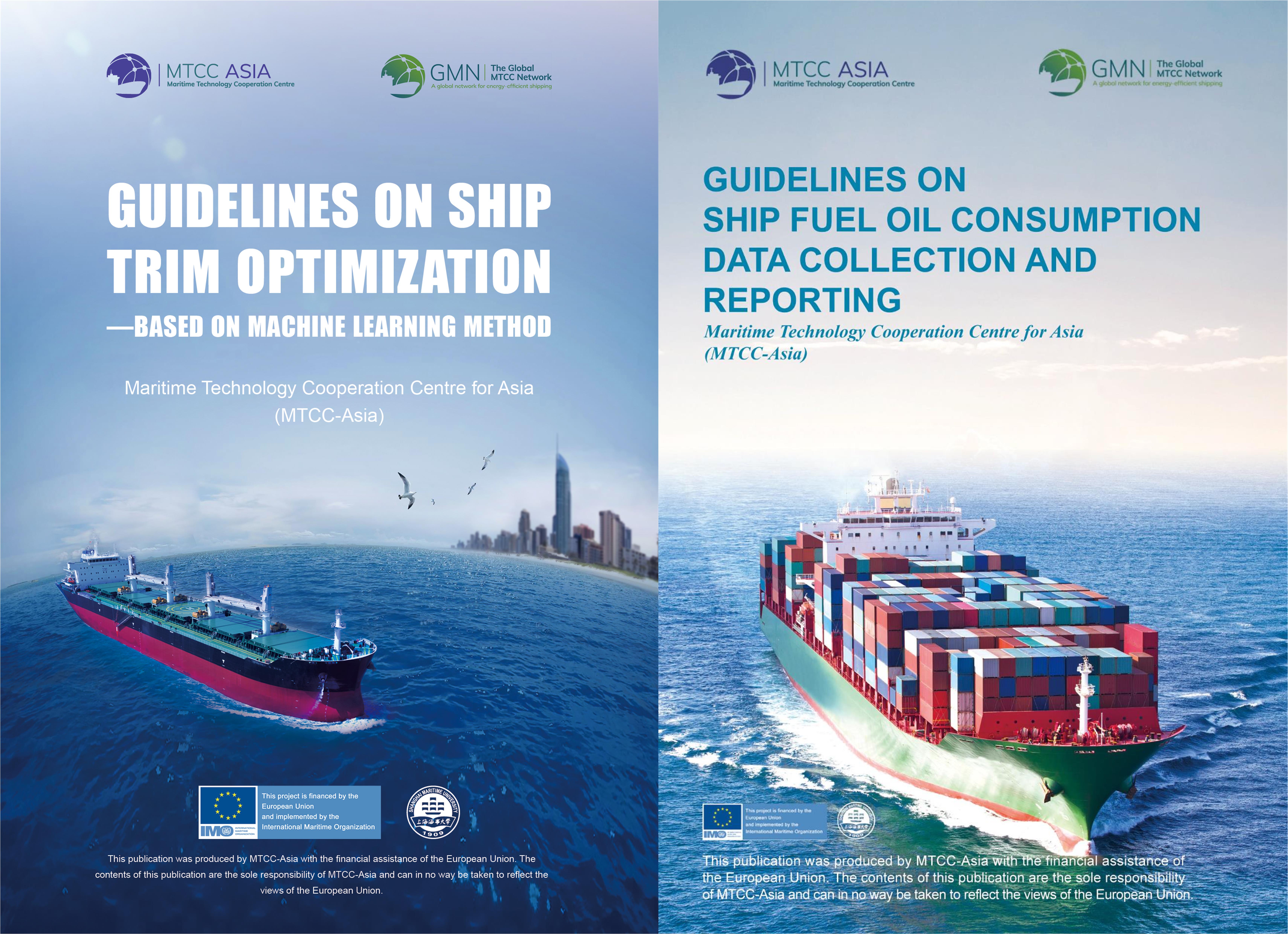Recently, MTCC-Asia funded by the European Union and implemented by the International Maritime Organization has completed the development of Guidelines on Ship Trim Optimization—Based on Machine Learning Method and Guidelines on Ship Fuel Oil Consumption Data Collection and Reporting. These two guidelines are regarded as one of main outputs under the framework of the clearly defined two pilot projects on “uptake of ship energy efficient technologies and operations” and “ship fuel oil consumption data collection and reporting”, respectively.
To achieve the overall objective of supporting Asian developing countries in limiting and reducing greenhouse gas (GHG) emissions from their shipping sector through technical assistance/capacity-building to promote low-carbon and energy efficient shipping technologies and operations, more importantly, to raise the awareness of each practitioner in the shipping sector of better understanding the mission and the international regulatory framework developed under leading role of the IMO for the reduction of GHG emissions from ships, these publications are come into being based on a number of actions including technical seminars, data collection from demonstration ships, data analysis, application assessment and development of demo software.
To facilitate readers, in particular seafarers, both publications are written in a user-friendly language through the avoidance of complex terminology and formula as far as possible.
Guidelines on Ship Trim Optimization—Based on Machine Learning Method is organized in five parts as follows:
Chapter I presents the overall regulations developed and various actions conducted by IMO to enable the international shipping sector to meet the goal set in the United Nations Framework Convention on Climate Change (UNFCCC) for fighting the global climate change.
Chapter II provides the basic theoretical knowledge regarding the ship trim optimization and machine learning method.
Chapter III introduces in detail the operations of ship trim optimization based on the machine learning method, including the data preparation, system development and practical cases.
Conclusions and precautions in operating ship trim optimization based on the machine learning method are summarized in Chapter IV.
An operational guidance for users’ reference on simplified software of ship trim optimization based on the machine learning method is demonstrated in Chapter V.
Guidelines on Ship Fuel Oil Consumption Data Collection and Reporting is organized in five parts as follows:
Chapter I presents the overall regulations developed and various actions conducted by IMO to enhance the energy efficiency and reduce GHG emissions from international shipping as a contribution to the global actions against climate change under the United Nations Framework Convention on Climate Change (UNFCCC).
Chapter II provides the intent of and the mandatory requirements on the ship fuel consumption data collection and reporting.
Chapter III introduces in detail principles, precautions and data submitted requirements of three data collection methods, i.e. method using bunker delivery notes (BDNs), method using fuel oil tanker monitoring on board and method using flow meters.
Cases of ship fuel consumption data collection and reporting from container ship, bulk carrier and oil tanker are presented in Chapter IV.
Operational guidance for users’ reference on a simplified software of ship fuel consumption data collection and reporting is demonstrated in Chapter V.






 Social Media
Social Media





 External link
External link




